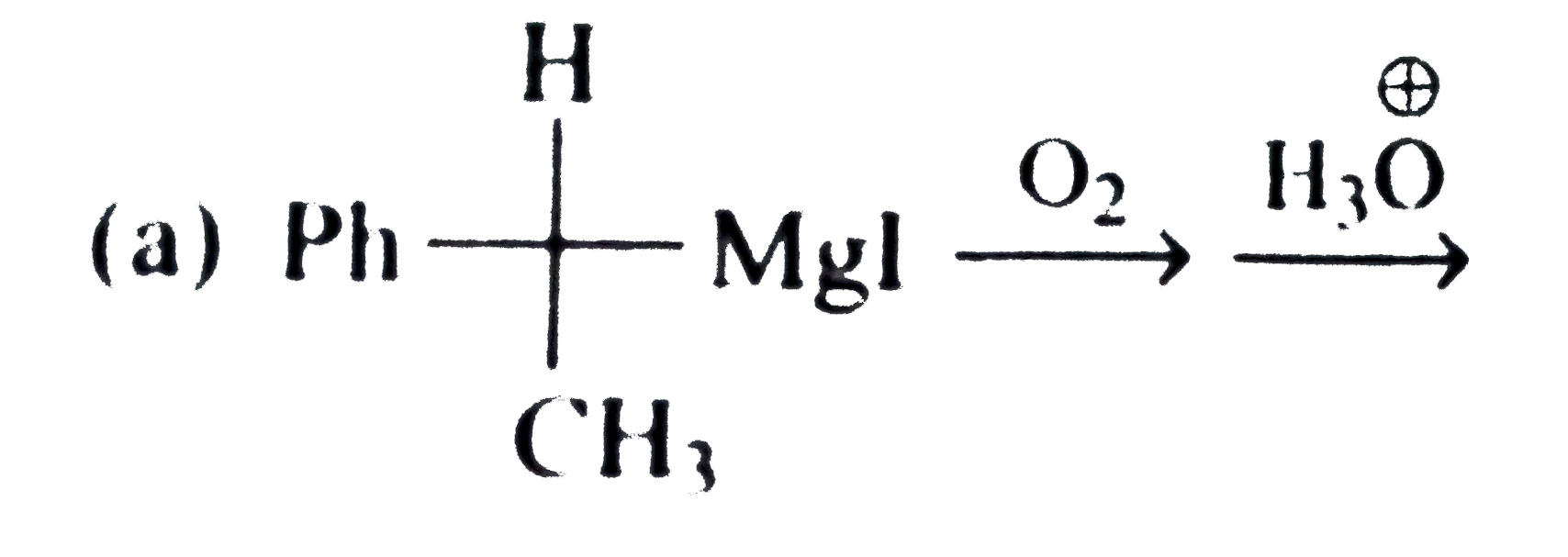Which of the following reactions give RCONH2
R−C≡N+H2OHCl−−→
RCOONH4heat−−→
R−COCl+NH3→
(RCO)2O+NH3→
The correct Answer is:B, C
To determine which reactions yield the compound RCONH2 (amide), we can analyze the provided information step by step.
Step 1: Identify the starting materials
The question mentions a few starting materials and reactions. We need to identify the relevant ones that can lead to the formation of RCONH2.
Step 2: Analyze the reactions
1. Reaction with RC(=O)NH4:
- When we heat this compound, it can yield RCONH2. This is because heating can cause the release of ammonia (NH3) from the ammonium compound, leading to the formation of the amide.
2. Reaction with RC(=O)Cl (Acyl Chloride):
- When acyl chlorides react with ammonia (NH3), they produce amides. The reaction proceeds as follows:
- RC(=O)Cl + NH3 → RCONH2 + HCl
- This reaction is a classic method for synthesizing amides.
Step 3: Confirm the products
From the reactions analyzed:
- The first reaction (RC(=O)NH4) upon heating gives RCONH2.
- The second reaction (RC(=O)Cl with NH3) also gives RCONH2.
Conclusion
Both reactions lead to the formation of RCONH2. Therefore, the answer to the question is that both reactions yield the desired amide.
The question mentions a few starting materials and reactions. We need to identify the relevant ones that can lead to the formation of RCONH2.
1. Reaction with RC(=O)NH4:
- When we heat this compound, it can yield RCONH2. This is because heating can cause the release of ammonia (NH3) from the ammonium compound, leading to the formation of the amide.
2. Reaction with RC(=O)Cl (Acyl Chloride):
- When acyl chlorides react with ammonia (NH3), they produce amides. The reaction proceeds as follows:
- RC(=O)Cl + NH3 → RCONH2 + HCl
- This reaction is a classic method for synthesizing amides.
From the reactions analyzed:
- The first reaction (RC(=O)NH4) upon heating gives RCONH2.
- The second reaction (RC(=O)Cl with NH3) also gives RCONH2.
Both reactions lead to the formation of RCONH2. Therefore, the answer to the question is that both reactions yield the desired amide.
Topper's Solved these Questions
- NITROGEN CONTAINING COMPOUNDS BOOK - ERRORLESS CHAPTER - NITROGEN CONTAINING COMPOUNDS EXERCISE - REASONING TYPE QUESTION
3 Videos
- NITROGEN CONTAINING COMPOUNDS BOOK - ERRORLESS CHAPTER - NITROGEN CONTAINING COMPOUNDS EXERCISE - COMPREHENSION TYPE QUESTIONS
7 Videos
- NITROGEN CONTAINING COMPOUNDS BOOK - ERRORLESS CHAPTER - NITROGEN CONTAINING COMPOUNDS EXERCISE - CRITICAL THINKING OBJECTIVE QUESTIONS
10 Videos
- IONIC EQUILIBRIUMBOOK - ERRORLESS CHAPTER - IONIC EQUILIBRIUMEXERCISE - JS Jee Section (JEE Advanced (Numeric answer type question))
1 Videos
- NUCLEAR CHEMISTRY BOOK - ERRORLESS CHAPTER - NUCLEAR CHEMISTRY EXERCISE - JEE SECTION (Matrix Match Type Questions)
2 Videos
Similar Questions
Knowledge Check
Which of the following reaction gives H2 gas ?
ANaNH2+H2O→BZn+conc.H2SO4→CZn+ aqNaOH→DCaH2+H2O→Which of the following reactions does not give RCONH2?
AR−C≡N+H2OHCl−−→BRCONH4heat−−→CRCNH2/Ni−−−→D(RCO)2O+NH3−−→Which of the following reactions wil give 2∘ chiral alcohol as major product ?
A BCH3MgI(excess)+H−O∣∣C−O−CH2CH3H3⊕O−−→C
BCH3MgI(excess)+H−O∣∣C−O−CH2CH3H3⊕O−−→C DPhMgBr+CH3−O∣∣C−PhH3⊕O−−→
DPhMgBr+CH3−O∣∣C−PhH3⊕O−−→
Which of the following reactions gives pentaerythritol?
View SolutionWhich of the following reactions will give propane ?
View SolutionWhich of the following reaction will give an alkyne?
View SolutionWhich of the following reactions give benzophenone
View SolutionWhich of the following reactions will not give propane
View Solution
